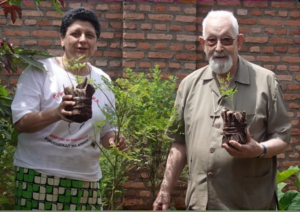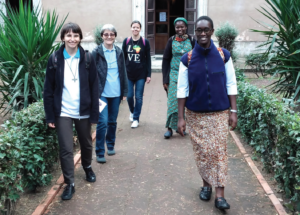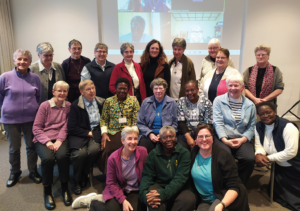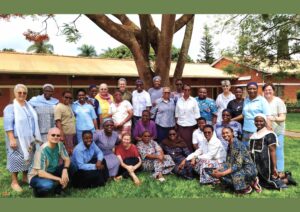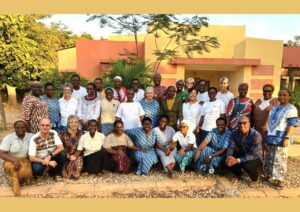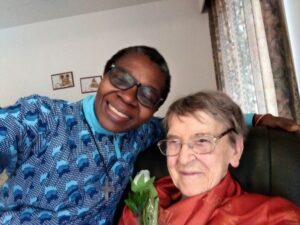How best would I please God? – A missionary witness
Sister Celina Natanek is a Missionary Sister of Our Lady of Africa who comes from Poland. For a few years she has been working in Mauritania, in Western Africa. She shares with us about her vocation and her missionary work among the Mauritanians.
How did you discover your vocation?
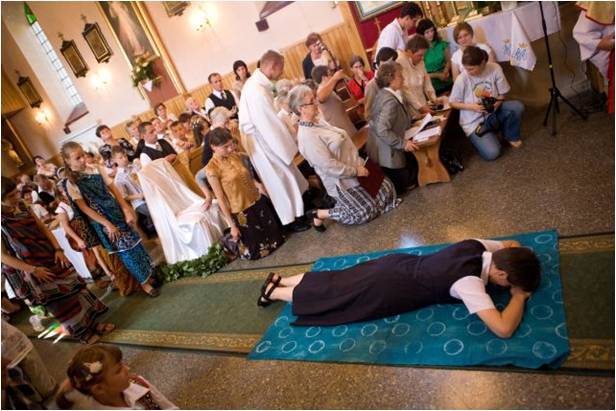 The vocation to the religious and missionary life grew in me since childhood. Mass, meetings, prayer at home and nature have been telling me about God, awakening questions about the meaning of life and death and the desire for God, loving and being loved.
The vocation to the religious and missionary life grew in me since childhood. Mass, meetings, prayer at home and nature have been telling me about God, awakening questions about the meaning of life and death and the desire for God, loving and being loved.
In the Church, through reading and meeting with missionaries, especially on pilgrimages, I learned about various forms of vocation, including a missionary one.
After graduating from primary school, for the first time I went for a few days retreat to the Sisters in Krakow. There, the desire became stronger, to be close to God and in Him to seek the meaning of my life. At the same time, I understood internally that this was not the congregation which God had prepared for me.
Then there was high school and with it came new friendships and a desire to be a wife and mother. The inner tension lasted for several years. Prayer, reading and friends helped. I prayed, read missionary newsletters and missionaries’ testimonies.
Finally, I went to Our Lady in Częstochowa, asking her for the grace of an inner understanding of where and how best I would please God. I didn’t wait long for an answer because that’s where I met the Missionary Sisters of Our Lady of Africa. Daily life in the international community and then the trip to Africa confirmed my decision with inner peace and joy.
In every new place, in every new stage of my life I discover them anew, I strengthen myself in them, I discover what God invites me to do every day. For where my treasure is, there is my heart (Mt 6:21). These words remind me that I need to abide in God’s love for me (Jn 15:10), which I am constantly discovering in Jesus Christ, in an intimate relationship with Him.
For the past few years, you have worked in Mauritania. What fascinated you in the local culture, people, and what was the challenge?
I am constantly discovering the culture of these people. The deeper I understand their habits, the more I feel connected with them. I say this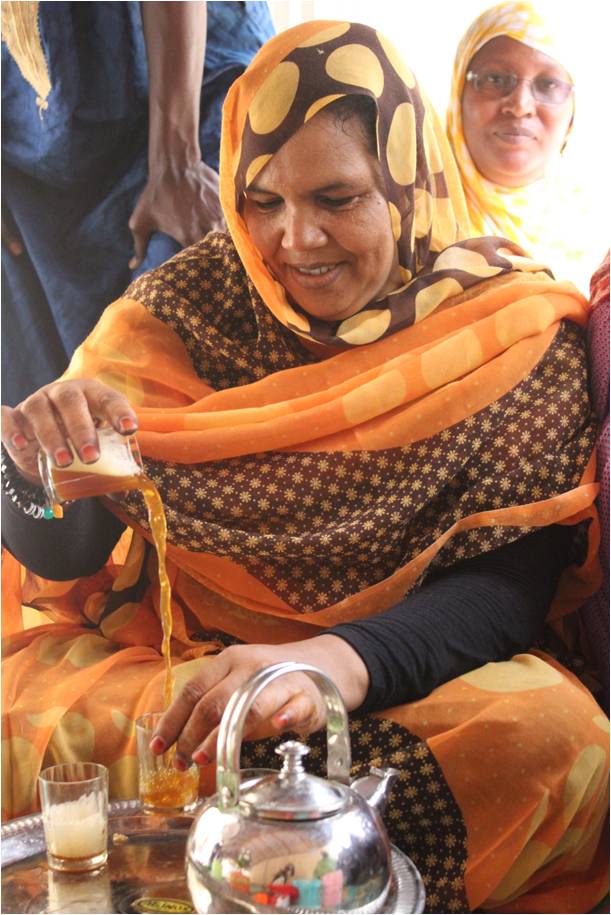 because there are five ethnic groups in Mauritania: Bidan (descendants of Arabs and Berbers), Haratin (descendants of former slaves), Pulaar, Wolof, Soninke. Their traditions are very different and very rich.
because there are five ethnic groups in Mauritania: Bidan (descendants of Arabs and Berbers), Haratin (descendants of former slaves), Pulaar, Wolof, Soninke. Their traditions are very different and very rich.
To see people praying on the street, in the shops, at work, at home, in the mosque, by the roadside was a surprise to me. But it also reminds me that I live in God, that God is the Creator and that everything comes from Him and is coming to Him. This is a daily reminder that my life is a gift from God; that I live, move and I am in Him. Mauritania is an Islamic Republic and the official religion of the country is Islam.
What is common to all of Mauritania is their religion and hospitality, their solidarity and generosity in need. The ceremony of brewing and drinking tea fascinated me from the beginning. It is time spent with another person, without hurrying. The very ritual of brewing tea is beautiful.
The challenge was and still is the lack of a policy of cleaning up towns and villages, the lack of knowledge of waste separation and the lack of a sense of need for garbage disposal. Therefore, garbage is everywhere. Forming a society and teaching people new behaviours is time consuming.
Another challenge is the fact that acquaintances are still important there, so it all depends on who is in the office.
What is the face of the Church in Mauritania?
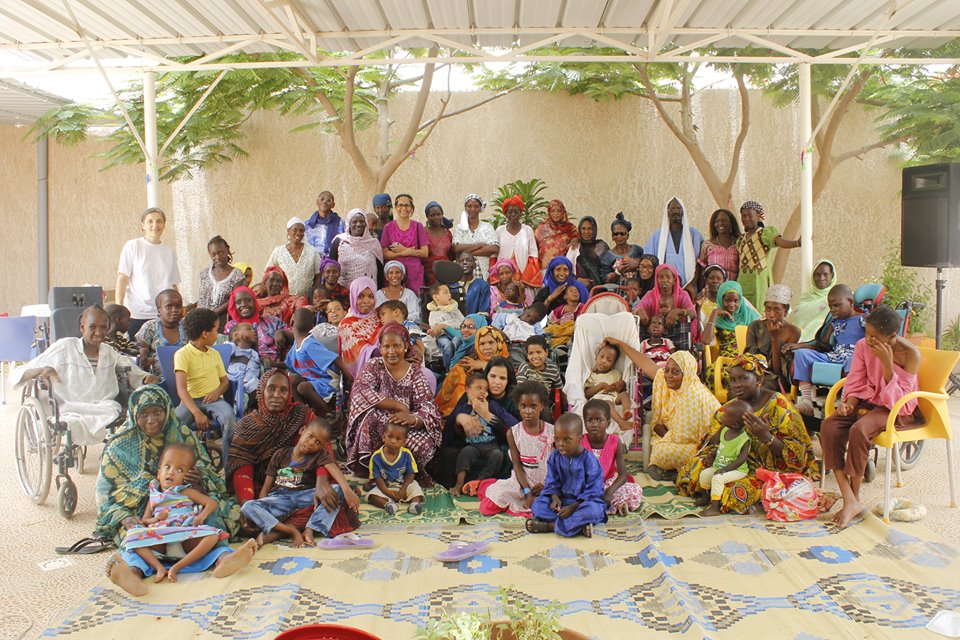 The Church in Mauritania is a small international community. It is the “Church-Family,” as our Bishop Martin Happe liked to say.
The Church in Mauritania is a small international community. It is the “Church-Family,” as our Bishop Martin Happe liked to say.
There are two parishes, one in Nouadhibou and another in Noaukchott, each having about 600 faithful. In Rosso, Atar, Kaidi and Tufunde there are communities of sisters and priests. The Church as an institution has been recognized by the state for only a year. But from the beginning it has been well perceived and accepted through the witness and work of sisters, priests and faithful.
The community of faithful from Nouakchott recently had 47 nationalities. These include diplomats, employees of various organisations, job-seeking people, workers, refugees and families who came at the invitation of the first Mauritanian government to help build the structures of the then still young state. Our community is very lively, dynamic and committed. The faithful belong to numerous prayer and service groups and willingly engage in the liturgy, the preparation of masses and services.
What did you learn from your mission?
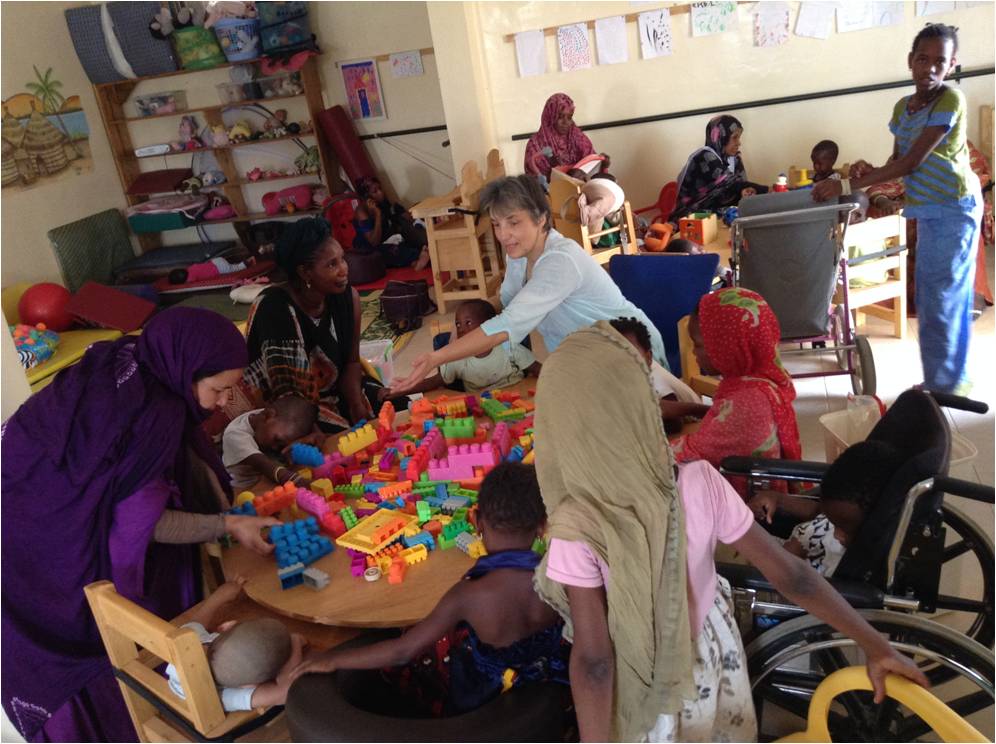 I am constantly learning. At the beginning of my missionary adventure I realized that God was there before me, that the Holy Spirit works in people.
I am constantly learning. At the beginning of my missionary adventure I realized that God was there before me, that the Holy Spirit works in people.
In my first post I learned that there are no poor people, there are people in need. This is what my brothers with leprosy taught me from the streets in Arusha, Tanzania, saying: “Sister, there is no one so poor that he would have nothing to give, because everyone has a heart.”
I also learned that our vocation is to life. The value of our life is not the amount of work done, successive titles or success, achievements or achieved goals, but being for God and for another person, being human, becoming human and being grateful for the gift of life itself. Children and people who are often lacking in basic things remind me about it most often.
Another thing I have learned is that, as our founder Cardinal Charles Lavigerie used to say, a missionary is a builder of foundations that are not visible. The missionary initiates the work; the building and finishing of it is the responsibility of the inhabitants.
The missionary vocation is beautiful and demanding.
What can we wish you?
To be holy, that is, to surrender myself completely to the Lord God, to be a bridge for people on their way to Him (my prayer and desire from the time of religious vows), to be diminished so that He may grow in me.
Interviewed by S. Anna Wójcik


